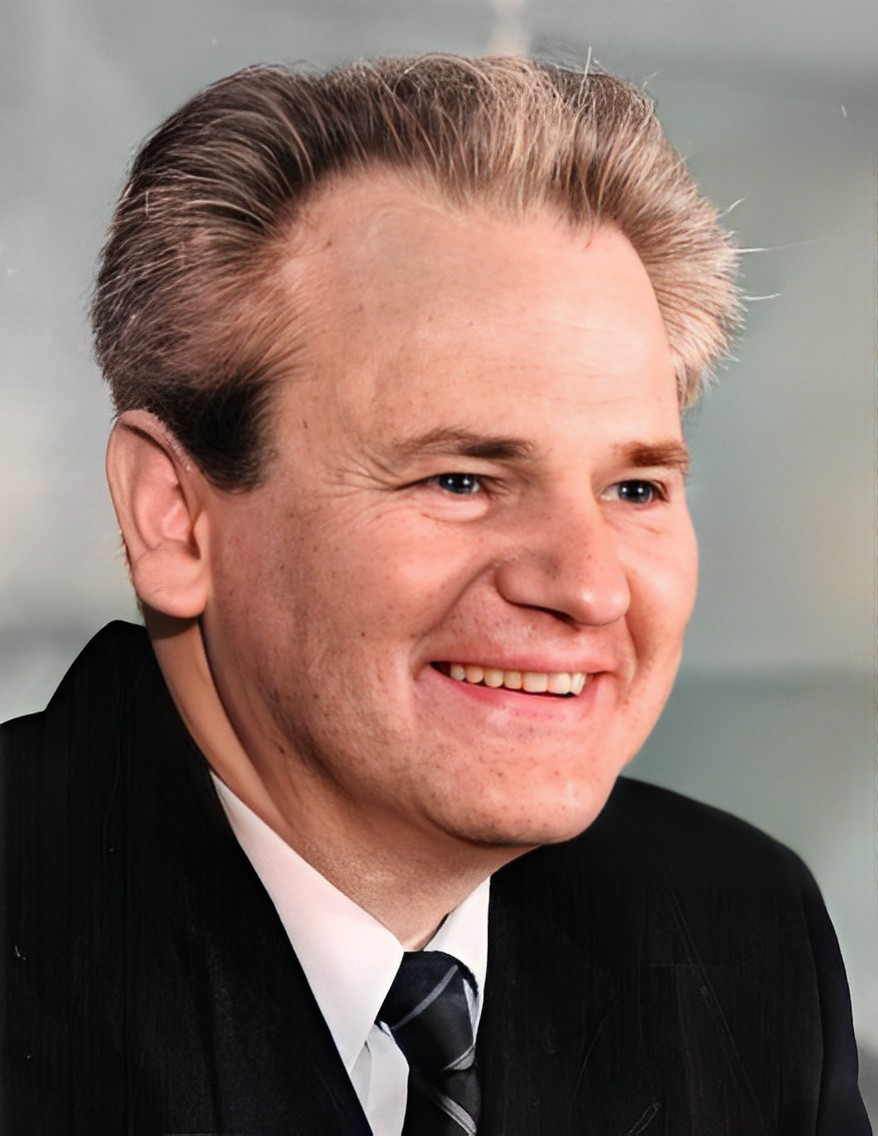More languages
More actions
Slobodan Milošević Слободан Милошевић | |
|---|---|
 | |
| Born | 20 August 1941 Požarevac, German-occupied Yugoslavia |
| Died | 11 March 2006 The Hague, Netherlands |
| Nationality | Serb |
| Political orientation | Neoliberalism (until 1990) Anti-imperialism Serbian nationalism |
| Political party | SKJ (1959–1990) SPS (1990–2006) |
Slobodan Milošević (20 August 1941 – 11 March 2006) was a Yugoslav neoliberal politician who served as President of Serbia from 1991 to 1997 and President of Yugoslavia from 1997 to 2000. In 1989, he repealed the 1974 constitution, preventing Kosovo from vetoing federal laws.[1] He tried to appease NATO at the 1995 Dayton Accords but later took a strong stance against imperialism despite his nationalism.
Party career[edit | edit source]
In 1987, as the newly elected head of the Serbian Communist Party, Milošević began carrying out neoliberal reforms (although in 1990 he would pursue a mixed economy) as instructed by the IMF.[2] Milošević strengthened the Serbian faction that opposed Kosovo secession.[1] In 1989, at a speech in Kosovo, Milošević sought to combine "history, memory and continuity", claiming that the Serbs who fought against the Turks in Kosovo in 1389 are the same as the Serbs fighting for Serbian national survival today.[3] In his speech he also expressed tolerance of multiculturalism.[4]
In 1990, Milošević removed the word "Socialist" from the new constitution he made for Serbia.[5] In 1991, Milošević stole 18 billion Yugoslav Dinars from the federal bank in an attempt to destabilize the Yugoslav state.[6]
Presidency[edit | edit source]
After completing two terms as President of Serbia, thus reaching the term limit, Milošević ran for President of Yugoslavia. He had opposition parties in his government.[7]
He was forced to resign on 7 October 2000, after US-backed protests.[8]
References[edit | edit source]
- ↑ 1.0 1.1 Michael Parenti (2000). To Kill a Nation: 'On to Kosovo' (pp. 97–98). [PDF] Verso.
- ↑ Edison Jakurti (2015). The Neoliberal Privatization in Kosovë: A Deconstructed Myth (pp. 14-15). [PDF] Rochester Institute of Technology.
- ↑ Edit Petrović (2000). Ethnonationalism and the Dissolution of Yugoslavia: 'Neighbors at War: anthropological perspectives on Yugoslav ethnicity, culture, and history' (p. 170). Penn State Press.
- ↑ “Serbia has never had only Serbs living in it. Today, more than in the past, members of other peoples and nationalities also live in it. This is not a disadvantage for Serbia. I am truly convinced that it is to its advantage. National composition of almost all countries in the world today, particularly developed ones, has also been changing in this direction. Citizens of different nationalities, religions, and races have been living together more and more frequently and more and more successfully.”
Michael Parenti (2000). To Kill a Nation: 'Multiculturalism in Yugoslavia' (pp. 187–188). [PDF] Verso. - ↑ Constitution of the Republic of Serbia (1990) (Serbian: Ustav Republike Srbije). [PDF]
- ↑ Gordan Malić (28-11-2003). Posle 12 godina ćutanja: Moja istina o smrti Jugoslavije Danas.
- ↑ “Milosevic, even the New York Times acknowledged, 'won elections that outside observers said were more or less fair.' At the end of 1999, he presided over a coalition government that included four parties, and faced several opposition parties in parliament.”
Michael Parenti (2000). To Kill a Nation: 'Multiculturalism in Yugoslavia' (pp. 177–183). [PDF] Verso. - ↑ Michael Dobbs (2000-12-11). "U.S. advice guided Milosevic opposition" The Washington Post.
